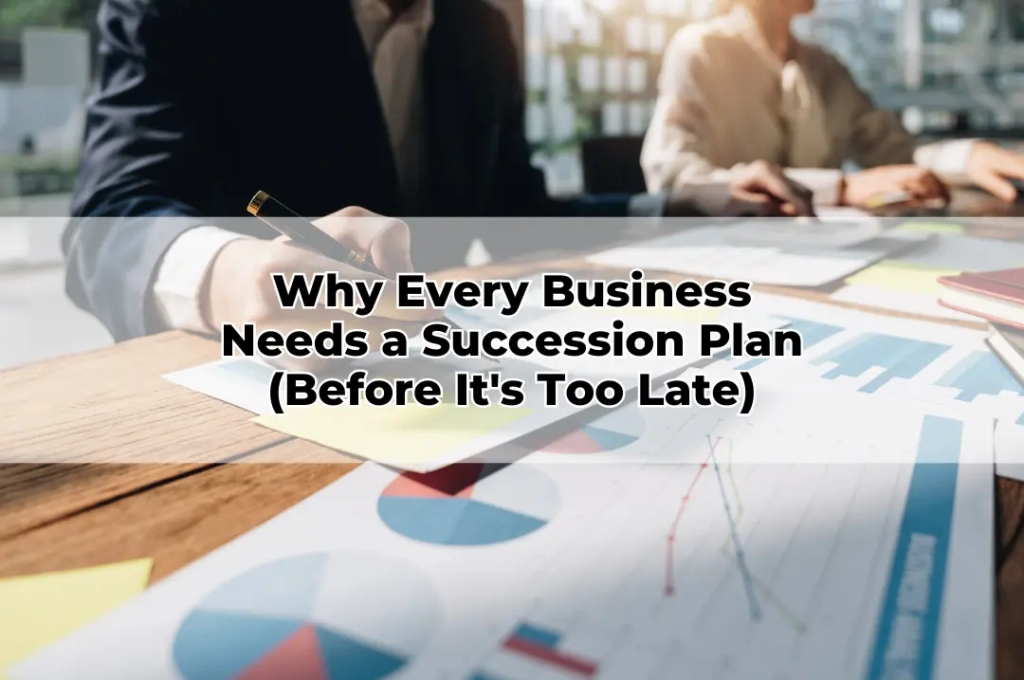Why Every Business Needs a Succession Plan (Before It’s Too Late)
Table of Contents
ToggleAt Wealth Factory, we often say that a business plan is only as strong as its exit plan. Whether you’re a small business owner, part of a family enterprise, or running a growing company with partners, planning what happens after you step away — due to retirement, illness, or something unexpected — is vital to protect your legacy.
Succession planning isn’t just for large corporations. In fact, for family-run or small businesses, it’s often the most critical part of the long-term strategy.
Let’s break down why business succession planning matters and how you can get started today.
What is Business Succession Planning?
Succession planning is the process of deciding who will take over the management or ownership of your business when you’re no longer in the picture. This could be due to retirement, a serious illness, or death. It covers much more than just ownership — it includes key relationships, staff, systems, and even client continuity.
Done well, it ensures a smooth transition and helps prevent disruption, disputes, and financial instability.
Why It’s So Important
Without a clear plan, the business you’ve built could face chaos during a sudden change. Valuations may be disputed, client confidence could drop, and family or business partner disagreements might arise.
A properly documented succession plan:
-
Helps agree on a fair business valuation
-
Sets clear roles for family members or partners
-
Ensures a pathway for the business to continue operations
-
Provides funding mechanisms (like insurance) to buy out ownership stakes
-
Minimises the tax and legal complexity of transferring business assets
What Should a Good Succession Plan Cover?
Every business is different, but a comprehensive plan usually addresses:
-
Trigger events like death, disability, retirement, or voluntary exit
-
Who will take over and how ownership will be transferred
-
How the business is valued and funded for any buyout
-
How liabilities and tax (like CGT or stamp duty) are managed
-
Agreements between owners and proper use of insurance
-
The role of family members and fairness among beneficiaries
In family businesses, especially where spouses or multiple generations are involved, open communication and documented decisions can prevent future conflict.
Insurance
Insurance is often the funding backbone of a succession plan. Whether it’s paying off business debts, funding a buyout, or protecting income if a key person is lost, the right insurance policy at the right time can make all the difference.
Types of insurance commonly used in business succession include:
-
Buy-sell insurance – allows one owner to buy the other’s share if they pass away or become disabled
-
Key person insurance – provides funds if a key employee dies or becomes ill
-
Business liabilities insurance – helps the business settle debts without selling off assets
-
Business overheads insurance – keeps the business running by covering fixed costs if the owner can’t work
Getting the policy ownership right is critical. If the wrong entity owns the policy, the tax consequences can be significant.
What About Self-Managed Super Funds (SMSFs)?
Many business owners hold their commercial property in an SMSF. While this can offer tax advantages, it also comes with strict rules.
If an owner dies and part of the property must be transferred to pay out a death benefit, things can get complicated — especially if other business partners aren’t related and don’t qualify to receive a super death benefit. In these cases, having a plan to fund the property transfer (often through insurance) is essential.
Special Considerations for Farming Families
Farm succession can be particularly complex. These businesses are often asset rich but cash poor, and emotional factors like unpaid labour, family promises, and who inherits what can lead to tension.
Some strategies that help navigate these issues include:
-
Hosting structured conversations in a neutral space like your adviser’s office
-
Documenting past arrangements and contributions
-
Balancing fairness between siblings and recognising unpaid work
-
Clarifying who gets control and who gets compensated
Farm succession planning is as much about relationships as it is about finance.
Other Legal Strategies to Know About
Aside from insurance and family meetings, there are legal tools that may play a role:
-
Mutual wills – agreements between spouses to pass business assets in a certain way (used with care)
-
Conditional contracts – agreements that trigger ownership transfer on specific events
-
In-principle agreements – informal notes of intent (less enforceable, but useful if formal planning hasn’t been done)
Each approach has tax and legal implications, so professional advice is vital.
Don’t Leave It Too Late
Whether you’re planning to retire in 10 years or just starting to build a family business, the best time to start succession planning is now. Even a basic plan is better than none.
At Wealth Factory, we help clients across Toowoomba and regional Queensland build succession strategies that work — not just in theory, but in practice. We work with your accountant, solicitor, and family to make sure the pieces fit together.
Book a call today and take the first step toward securing your business legacy.









